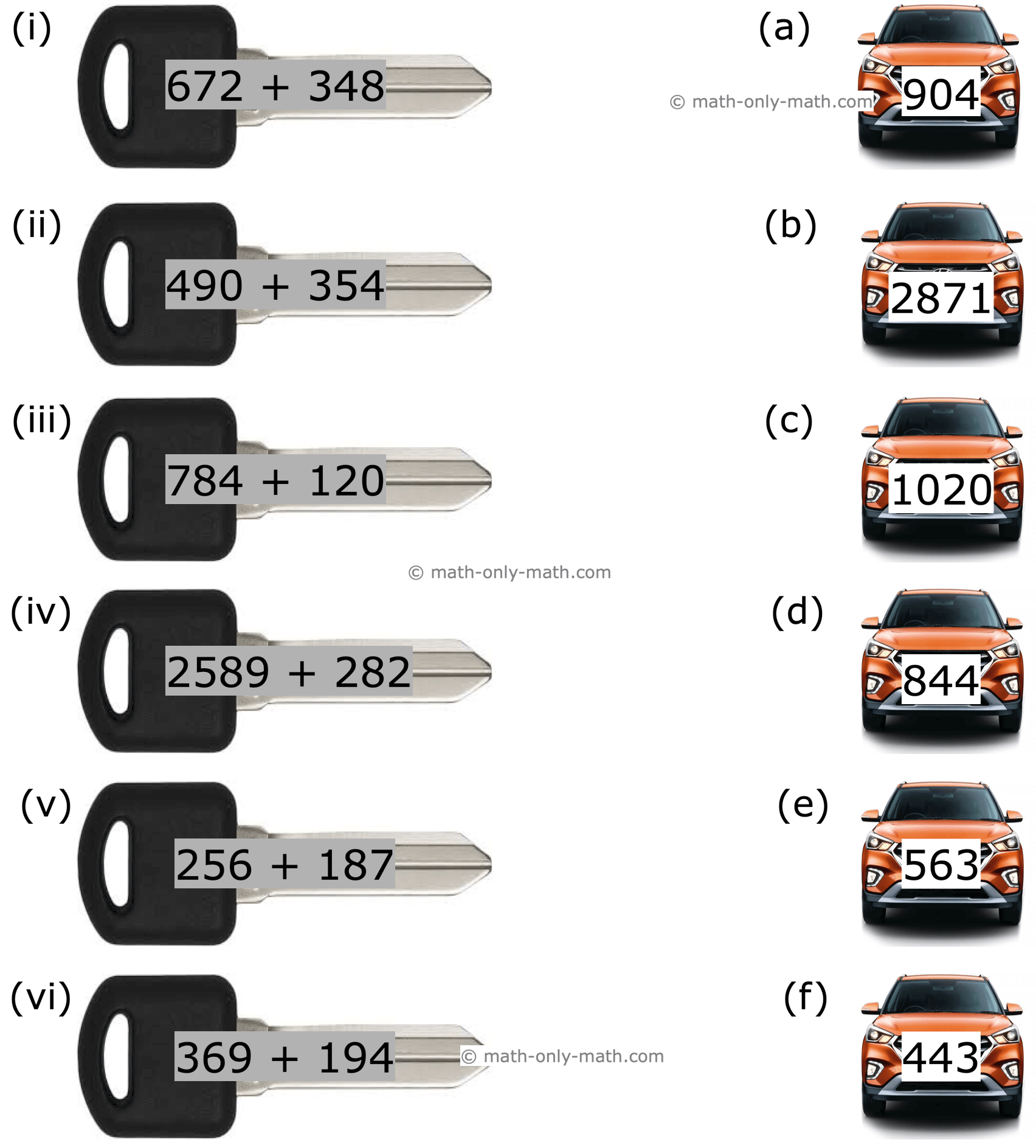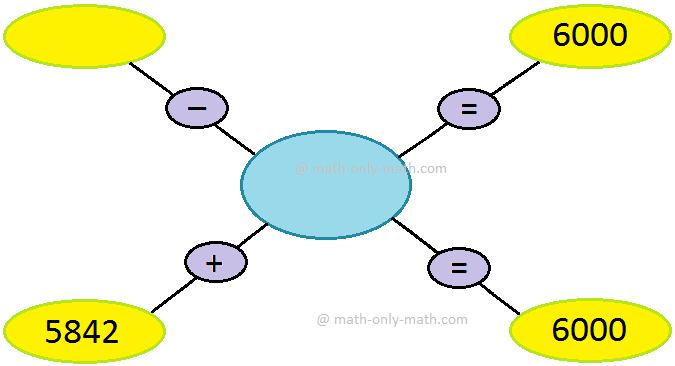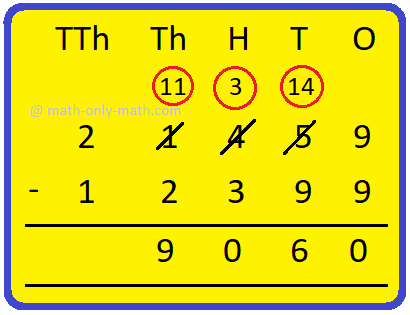Sum of n terms of a Geometric Progression
We will learn how to find the sum of n terms of the Geometric Progression {a, ar, ar\(^{2}\), ar\(^{3}\), ar\(^{4}\), ...........}
To prove that the sum of first n terms of the Geometric Progression whose first term ‘a’ and common ratio ‘r’ is given by
S\(_{n}\) = a(\(\frac{r^{n} - 1}{r - 1}\))
⇒ S\(_{n}\) = a(\(\frac{1 - r^{n}}{1 - r}\)), r ≠ 1.
Let Sn denote the sum of n terms of the Geometric Progression {a, ar, ar\(^{2}\), ar\(^{3}\), ar\(^{4}\), ...........} with first term ‘a’ and common ratio r. Then,
Now, the nth terms of the given Geometric Progression = a ∙ r\(^{n - 1}\).
Therefore, S\(_{n}\) = a + ar + ar\(^{2}\) + ar\(^{3}\) + ar\(^{4}\) + ............... + ar\(^{n - 2}\) + ar\(^{n - 1}\) ............ (i)
Multiplying both sides by r, we get,
rS\(_{n}\) = ar + ar\(^{2}\) + ar\(^{3}\) + ar\(^{4}\) + ar\(^{4}\) + ................ + ar\(^{n - 1}\) + ar\(^{n}\) ............ (ii)
____________________________________________________________
On subtracting (ii) from (i), we get
S\(_{n}\) - rS\(_{n}\) = a - ar\(^{n}\)
⇒ S\(_{n}\)(1 - r) = a(1 - r\(^{n}\))
⇒ S\(_{n}\) = a\(\frac{(1 - r^{n})}{(1 - r)}\)
⇒ S\(_{n}\) = a\(\frac{(r^{n} - 1)}{(r - 1)}\)
Hence, S\(_{n}\) = a\(\frac{(1 - r^{n})}{(1 - r)}\) or, S\(_{n}\) = a\(\frac{(r^{n} - 1)}{(r - 1)}\)
Notes:
(i) The above formulas do not hold for r = 1. For r = 1, the sum of n terms of the Geometric Progression is S\(_{n}\) = na.
(ii)When the numerical value of r is less than 1 (i.e., - 1 < r < 1), then the formula S\(_{n}\) = a\(\frac{(1 - r^{n})}{(1 - r)}\) is used.
(iii) When the numerical value of r is greater than 1 (i.e., r > 1 or, r < -1) then the formula S\(_{n}\) = a\(\frac{(r^{n} - 1)}{(r - 1)}\) is used.
(iv) When r = 1, then S\(_{n}\) = a + a + a + a + a + .................... to n terms = na.
(v) If l is the last term of the Geometric Progression, then l = ar\(^{n - 1}\).
Therefore, S\(_{n}\) = a(\(\frac{1 - r^{n}}{1 - r}\)) = (\(\frac{a - ar^{n}}{1 - r}\)) = \(\frac{a - (ar^{n - 1})r}{(1 - r)}\) = \(\frac{a - lr}{1 - r}\)
Thus, S\(_{n}\) = \(\frac{a - lr}{1 - r}\)
Or, S\(_{n}\) = \(\frac{lr - a}{r - 1}\), r ≠ 1.
Solved examples to find the Sum of first n terms of the Geometric Progression:
1. Find the sum of the geometric series:
4 - 12 + 36 - 108 + .............. to 10 terms
Solution:
The first term of the given Geometric Progression = a = 4 and its common ratio = r = \(\frac{-12}{4}\) = -3.
Therefore, the sum of the first 10 terms of the geometric series
= a ∙ \(\frac{r^{n} - 1}{r - 1}\), [Using the formula S\(_{n}\) = a\(\frac{(r^{n} - 1)}{(r - 1)}\) since, r = - 3 i.e., r < -1]
= 4 ∙ \(\frac{(-3)^{10} - 1}{-3 - 1}\)
= 4 ∙ \(\frac{(-3)^{10} - 1}{-4}\)
= - (-3)\(^{10}\) - 1
= -59048
2. Find the sum of the geometric series:
1 + \(\frac{1}{2}\) + \(\frac{1}{4}\) + \(\frac{1}{8}\) + \(\frac{1}{16}\) + .............. to 10 terms
Solution:
The first term of the given Geometric Progression = a = 1 and its common ratio = r = \(\frac{\frac{1}{2}}{1}\) = \(\frac{1}{2}\)
Therefore, the sum of the first 10 terms of the geometric series
S\(_{10}\) = a\(\frac{(1 - r^{10})}{(1 - r)}\)
⇒ S\(_{10}\) = 1 ∙ \(\frac{(1 - (\frac{1}{2})^{10})}{(1 - \frac{1}{2})}\)
⇒ S\(_{10}\) = 2(\(\frac{1}{2^{10}}\))
⇒ S\(_{10}\) = 2(\(\frac{2^{10} - 1}{2^{10}}\))
⇒ S\(_{10}\) = 2(\(\frac{1024 - 1}{1024}\))
⇒ S\(_{10}\) = \(\frac{1024 - 1}{512}\)
⇒ S\(_{10}\) = \(\frac{1023}{512}\)
Note that we have used formula Sn = a(\(\frac{(1 - r^{n})}{(1 - r)}\) since r = 1/4 i.e., r < 1]
3. Find the sum of 12 terms of the Geometric Progression 3, 12, 48, 192, 768, ................
Solution:
The first term of the given Geometric Progression = a = 3 and its common ratio = r = \(\frac{12}{3}\) = 4
Therefore, the sum of the first 12 terms of the geometric series
Therefore, S\(_{12}\) = a\(\frac{r^{12} - 1}{r - 1}\)
= 3(\(\frac{4^{12} - 1}{4 - 1}\))
= 3(\(\frac{16777216 - 1}{3}\))
= 16777216 - 1
= 16777215
4. Find the sum to n terms: 5 + 55 + 555 + 5555 + .............
Solution:
We have 5 + 55 + 555 + 5555 + ............. to n terms
= 5[1 + 11 + 111 + 1111 + .............. + to n terms]
= \(\frac{5}{9}\)[9 + 99 + 999 + 9999 + ................ + to n terms]
= \(\frac{5}{9}\)[(10 – 1) + (10\(^{2}\) - 1) + (10\(^{3}\) - 1) + (10\(^{4}\) - 1) + .............. + (10\(^{n}\) - 1)]
= \(\frac{5}{9}\)[(10 + 10\(^{2}\) + 10\(^{3}\) + 10\(^{4}\) + ................ + 10\(^{n}\)) – ( 1 + 1 + 1 + 1 + ................ + 1)] n times
= \(\frac{5}{9}\)[10 × \(\frac{(10^{n} - 1)}{(10 - 1)}\) – n]
= \(\frac{5}{9}\)[\(\frac{10}{9}\)(10\(^{n}\) – 1) – n]
= \(\frac{5}{81}\)[10\(^{n + 1}\) – 10 – 9n]
● Geometric Progression
- Definition of Geometric Progression
- General Form and General Term of a Geometric Progression
- Sum of n terms of a Geometric Progression
- Definition of Geometric Mean
- Position of a term in a Geometric Progression
- Selection of Terms in Geometric Progression
- Sum of an infinite Geometric Progression
- Geometric Progression Formulae
- Properties of Geometric Progression
- Relation between Arithmetic Means and Geometric Means
- Problems on Geometric Progression
11 and 12 Grade Math
From Sum of n terms of a Geometric Progression to HOME PAGE
Didn't find what you were looking for? Or want to know more information about Math Only Math. Use this Google Search to find what you need.
Recent Articles
-
Multiplication Table | Learn Tables from 0 – 25 | Multiplication Table
Jan 14, 25 11:09 PM
In math multiplication table we will learn the tables from 0 – 25. These multiplication tables help the students to learn the essential multiplication facts. Multiplication tables are very important f… -
3rd Grade Math Worksheets |3rd Grade Math Sheets|3rd Grade Math Lesson
Jan 14, 25 11:02 PM
3rd grade math worksheets is carefully planned and thoughtfully presented on mathematics for the students. Teachers and parents can also follow the worksheets to guide the students. -
3rd Grade Subtraction Worksheet | 3-Digit Subtraction Worksheets | Ans
Jan 14, 25 01:57 PM
In 3th Grade Addition Worksheet we will solve how to subtract 3-digit numbers by expansion, subtraction of 3-digit numbers without regrouping, subtraction of 3-digit numbers with regrouping, propertie… -
Facts about Subtraction | Subtraction of Small Numbers|Solved Examples
Jan 14, 25 12:29 AM
The operation to finding the difference between two numbers is called subtraction. Let us know some facts about subtraction which will help us to learn subtraction of large numbers. 1. Subtraction wit… -
Word Problems on Subtraction |Worksheet on Subtraction Word Problems |
Jan 14, 25 12:21 AM
In word problems on subtraction we need to read the question carefully and understand what we need to find out. We know, in subtraction the larger number from which we subtract the other number (the s…





New! Comments
Have your say about what you just read! Leave me a comment in the box below. Ask a Question or Answer a Question.